Topics:
Never Miss a Beat - Get Updates Direct to Your Inbox
FILTER:


Is Having a Business Website The Right Move For You? Here’s How to Weigh the Pros and Cons
By Quiet Light
In a world where people discover products and services through social media campaigns and TikTok influencers, does your business even need a website anymore? Building and maintaining a business website takes time and intentionality, so you might be wondering if you can forget about making an entire website for your business.
But despite the popularity of social media and the effectiveness of social media marketing campaigns, there are still great advantages to creating your own business website as an entrepreneur.
Taking a close look at the pros and cons of websites for business owners can help you make a choice on whether a business website is right for you.
In this article, we discuss:
- Whether or not your business would benefit from a website
- How you can overcome the challenges associated with building a business website
- The benefits of having a website for your business and how it can help you reach your business goals


Do you need a business website?
Do any of the following scenarios describe your current business situation?
- You own a small, local business and most of your customers are within driving distance
- None of your products or services are available online
- You already utilize platforms like Facebook and Instagram to connect with customers
- You want to set up a website, but are concerned that the results won’t justify the cost of designing and maintaining a site
Buy a Profitable Online Business
Outsmart the startup game and check out our listings. You can request a summary on any business without any further obligation.
If you answered “yes” to any of those situations you might be questioning the necessity of an entire website dedicated to your business. However, with few exceptions, most businesses should have a website.
In today’s digitally driven world, websites are how customers discover you and learn more about your products and services.
Aren’t websites for larger, non-local companies?
If you’re a local small business owner, you could be thinking that websites aren’t for you. Maybe people walk into your store after walking by it on main street, or they hear about your products in another store from a word-of-mouth friendly referral.
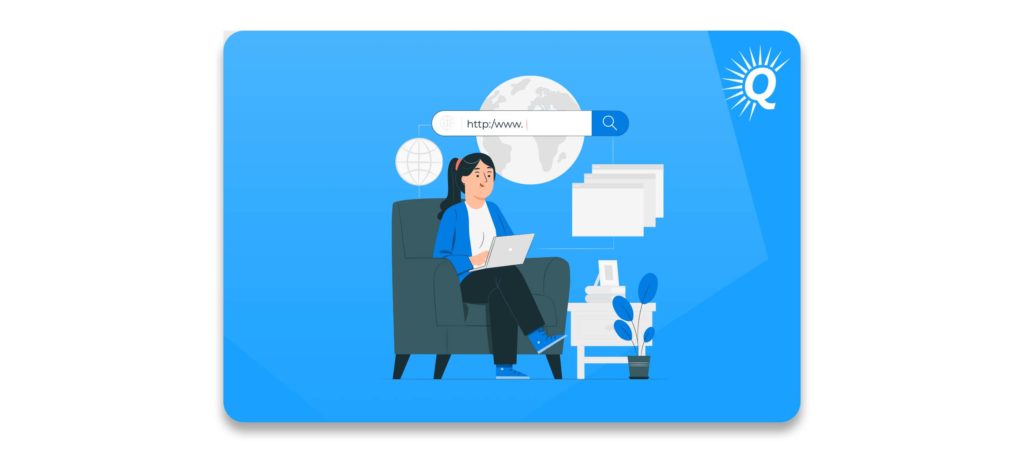

However, 85% of consumers today use the internet to discover and find local businesses. So while a majority of your customer base might be within driving distance to your business, they’re also doing a quick Google search to find and support local businesses.
If your business doesn’t have a website, you’re not only missing the opportunity to widen your customer base, you’re also missing chances to connect with local customers who may not know about your business yet.
“In today’s digitally driven world, websites are how customers discover you and learn more about your products and services.”
What if you don’t offer any products or services online?
If you don’t currently sell your products or services online, you might want to consider making some adjustments to your business model. There are over 2.14 billion online shoppers across the globe—and that number has seen a 4.4% increase between 2020 and 2021 thanks to a pandemic that made online shopping a necessity for some.
Isn’t social media enough?
Social media is a great tool for connecting and communicating with customers. However, you don’t have any control over the platform itself, which can prove problematic. Social media platforms change up their algorithms regularly. That can leave you constantly having to adjust your marketing strategies.
Another issue with relying solely on social media is that even the most popular platforms won’t be around forever. Remember when MySpace was the social media platform of choice?
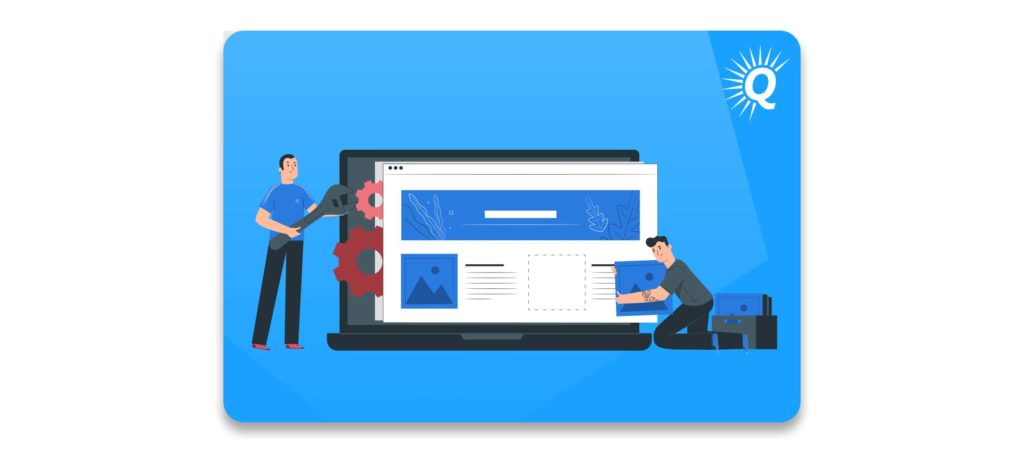

Meanwhile, customers across the generations are growing frustrated and disenchanted with social media. When one of your customers (or potential customers!) walks away from social media and that’s the only place to find your business online, you’ve lost your way to connect with them.
When you have a website business, you own the site and content. That’s true whether you build the website from scratch yourself or you hire a web designer. And unlike social media, your website is available to anyone with internet.
Aren’t websites expensive and difficult to build and maintain?
In the early days of the internet, setting up a website was not only expensive, it required quite a bit of tech knowledge. Of business owners who don’t have a website, 30% list the costs associated with building a website as the reason they don’t have a business website. But owning a website isn’t an expense that is going to do damage to your business finances.
Hiring a professional website developer to create your website could include a high price tag. But if your business budget is tight, that doesn’t mean you have to skip over a business website. Using a website building tool to create your website could bring your cost down as low as $10 a month. Those same website design tools make the process simple enough that all you need is a small budget and dedicated time to create a site of your own.
Next, we’ll discuss the disadvantages and advantages of having a website.
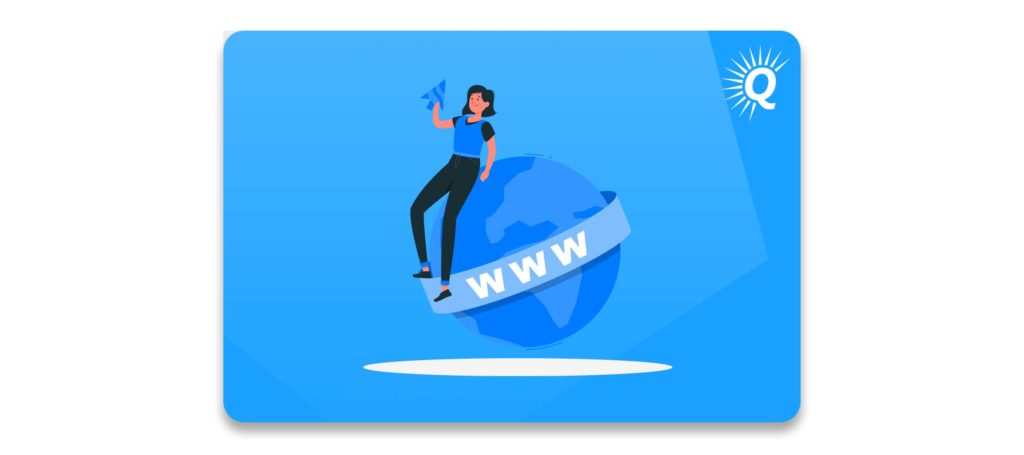

The disadvantages of business websites
There are a few challenges that accompany having a business website. Generally, they’re outweighed by the advantages (that we’ll cover in the next section!) but they include:
- Costs associated with creating and maintaining a website
- The time it takes to customize and maintain your digital presence
- No guarantees of immediate results
- Difficulties connecting with potential customers
Creating and maintaining a website is a financial investment
One of the main disadvantages to creating and maintaining a website is the cost involved. In the beginning stages of making a business website, those costs are associated with the website design process.
You can hire a professional web developer to create a custom website for you, or you can go the DIY route. Website building tools like Squarespace, Weebly, GoDaddy, and Wix, make it possible for you to create your own business website without a wealth of technological expertise.
Thinking of Selling Your Business?
Get a free, individually-tailored valuation and business-readiness assessment. Sell when you're ready. Not a minute before.
After your website is up and running, the costs associated with maintaining a website include:
- Domain name registration fees
- Web hosting costs
- Email marketing platform usage fees
- SSL certificate fees to help keep your website secure
- Costs associated with content marketing campaigns and search engine optimization
The costs of these digital products and services depend on your website’s complexity. A professional website with forty webpages and a full blown email marketing funnel will cost more than a simple website with a few pages and little customization involved.
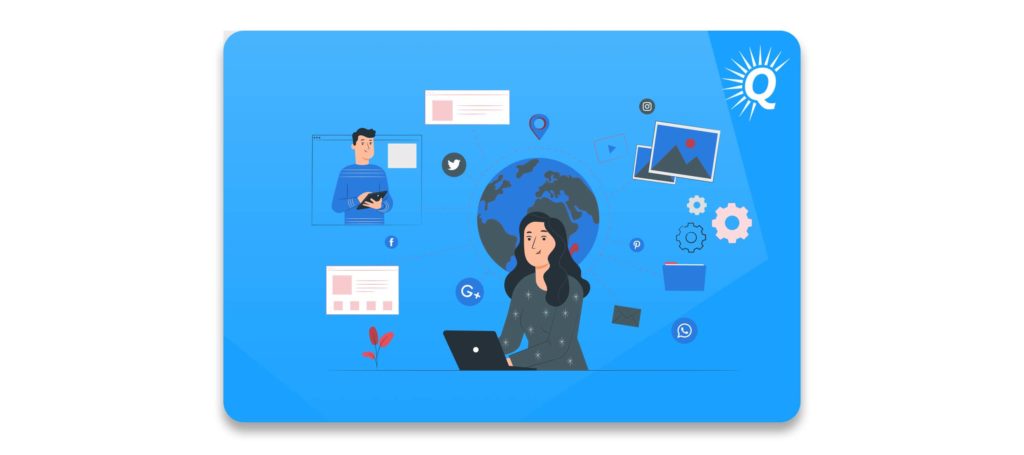

You have to keep your website fresh and updated
Building a website from scratch takes time, but the time investment continues long after the website is up and running. If you’re used to selling your products or services in a traditional brick-and-mortar business, the process of creating an ecommerce website for customers to browse takes time.
If you’ve been relying on social media for marketing and customer engagement, the time required to update website copy and images can feel like just another thing to add to your to-do list that already feels ten miles long.
Each time you update a product or service, you’ll need to update your website to reflect those changes. If you don’t take the time to maintain your website, customers might experience frustration. Nooner likes outdated pricing or product information. Having a poorly maintained website with an unpleasant customer experience can damage your business reliability and erode customer trust.
You may not see immediate results after your website is up and running
There’s nothing more frustrating than creating a fantastic business website only to get crickets from your customers. You may be clicking “refresh” on your Google Analytics page and not seeing the results you’d hoped for.
But remember that the work that you put into building your digital presence on a website can have incredible results in the long run. A blog post you spent hours writing might only have ten views today, but a year from now, that post could become a pillar content piece on your website.
Just like you can’t build a business in a day, building a website takes time and patience. And in the fast-paced world of social media customer interaction and trends, that wait can seem to stretch on and on.
“Just like you can’t build a business in a day, building a website takes time and patience.”
Connecting with the right customer via your website takes time
There are a lot of people searching online, but you want to connect with individuals. While it can be incredible to connect with customers who may never have found your business without your website, it can take time and a professionally crafted marketing plan to get in touch with them.
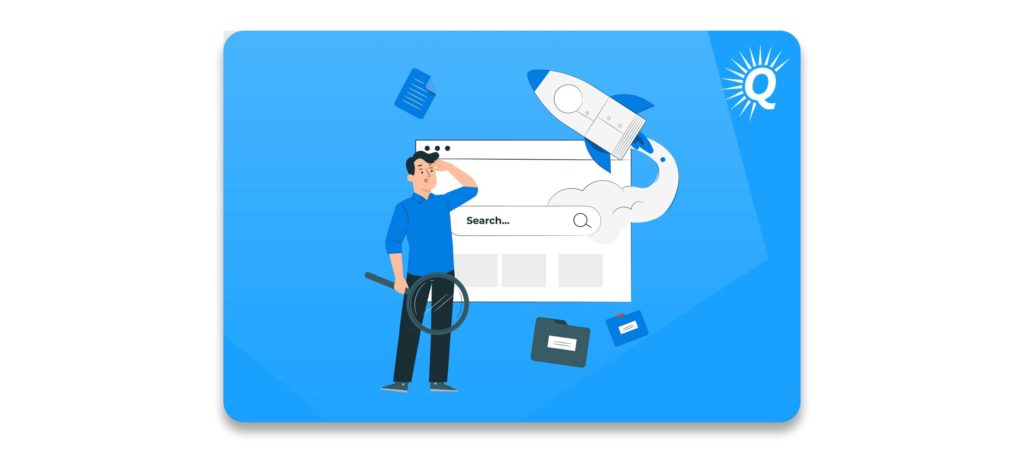

It takes time to create a great SEO strategy. And if you’ve never created an online business website, you might experience a bit of a learning curve.
Advantages of business websites
Although websites take time and money to build and maintain, your investment can pay dividends. Some of the pros of having a business website include:
- Having a digital presence that builds customer recognition and trust
- You can widen your customer reach through search engine results
- Having a website means that your business is open 24/7
- Business websites give you a dedicated space to share products and promotions
A business website builds brand recognition and reliability
When you run a business, you want to connect with customers and share the story of your company. First, you want customers to know that your product exists. You also want to share about products that are coming down the pike. Of course, you need to articulate how your products or services provide solutions.
When you design and create a website, you’re not only connecting with customers, you’re building up brand recognition and reliability. They can browse your website, connect with your mission, and shop your products all in one convenient location.
Websites also give you the opportunity to learn more about your customers so you can better meet their needs. Using tools like Google Analytics allows you to track metrics and customer behavior on your site so you can make the browsing and shopping experience smooth and trustworthy.
“When you design and create a website, you’re not only connecting with customers, you’re building up brand recognition and reliability.”
Widening your customer reach
A business website allows you to reach your target audience, even if they live thousands of miles away from you. Let’s say your main product is currently only carried in stores. Even if stores around the country partnered with you through wholesale product offerings, your customer interaction is still limited to people who walk in the doors of stores who shelve your product.
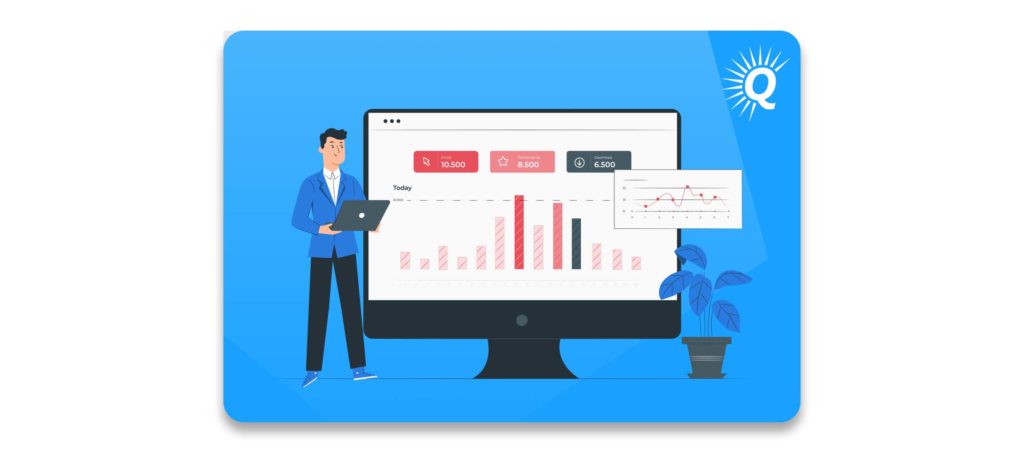

But with a website, anyone anywhere can discover your business. Instead of just reaching your target audience, you expand your target audience. With just a few web searches, people will be able to browse your product or service catalog, learn your business’ story, and read product reviews—all from the comfort of their living room couch.
Immediate customer interaction at any time of the day (or night!)
If you run a business out of a physical office or store location, you have to close the door for the night at some point. And even if your business is totally online, you’re not available 24/7 to answer customer questions and connect with potential clients. However, when you create a website, customers can learn about you and your business at any time of the day or night.
Dedicated space to share products and promotions
You can (and should!) share updates, sales information, and behind-the-scenes looks at your business on social media. But when you create a website, you own that piece of the digital world and you don’t have to rely on Facebook or Instagram to show your announcement in your customer’s feed.
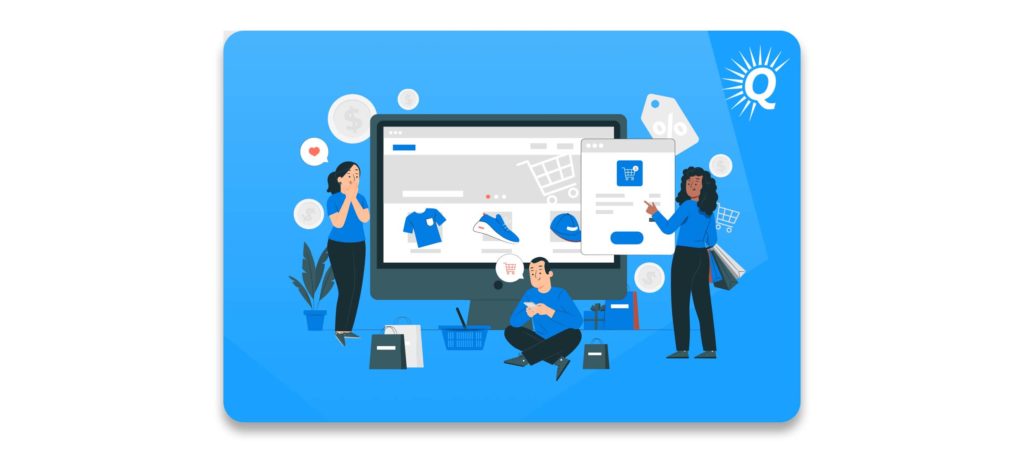

Last year when Facebook, Instagram, and Whatsapp went dark for just five hours on a Monday morning, that outage impacted business advertisers who rely on those platforms to drive sales. One small business owner had only one-fourth of his expected sales that day. When you own your own business and utilize tools like email marketing, you won’t be nearly as reliant on social media platforms to connect with customers and make sales.
Conclusion
Thanks to website builder tools like Squarespace, Weebly, and Wix, building a website on your own is easier today than it has ever been.
If the tech side of website design is out of your wheelhouse, you can also hire a professional to build your website for you. They have the design knowledge and software at their disposal to help make your website come to life.
Although websites take time and money to build and maintain, the advantages of having a website for your business outnumber the disadvantages. Creating your own digital presence, widening customer reach, and increasing your sales can help you grow your business and reach the goals and dreams you have as an entrepreneur.
Buy a Profitable Online Business
Outsmart the startup game and check out our listings. You can request a summary on any business without any further obligation.





